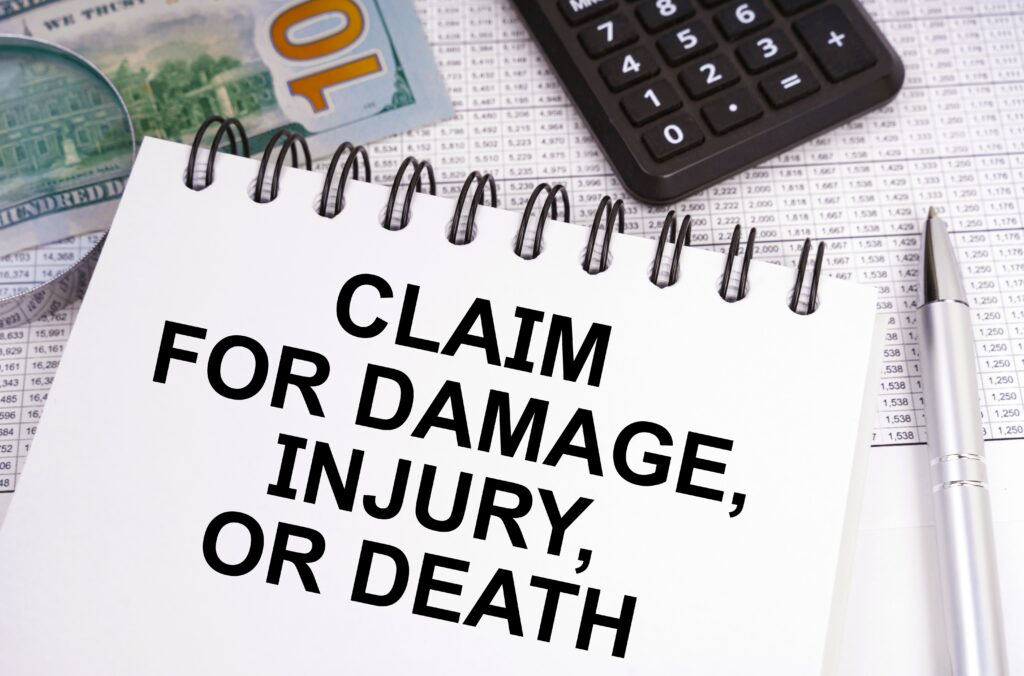Losing a loved one is always painful. But when that loss is caused by someone else's wrongdoing or negligence, the grief is compounded by anger and a desire for justice. If you find yourself in this tragic situation, one of the most important things to understand is the wrongful death statute of limitations. This is the legal time limit for filing a wrongful death lawsuit.
While nothing can undo your loss, a Bellingham wrongful death attorney can seek compensation and hold the responsible parties accountable. However, you must act within the statute of limitations, or you may lose your right to bring a case. Keep reading to learn what you need to know about wrongful death statutes of limitations.
What is a Wrongful Death Lawsuit?
First, let's clarify what is "wrongful death" under the law. A wrongful death occurs when someone is killed due to another party's negligence, recklessness, or deliberate harmful act.
Some common scenarios that may give rise to a wrongful death claim include:
- Car, truck, or motorcycle accidents caused by the other driver
- Slip and fall accidents on someone else's property
- Criminal acts like assault or murder
Any situation where a person or entity's wrongful actions lead to a death may qualify as a wrongful death case. The key is that the death was caused by negligence or misconduct rather than unavoidable circumstances. If you believe your loved one's death fits this description, then you may have grounds for a wrongful death lawsuit.
Who Can File a Wrongful Death Claim?

Most states have laws specifying who is allowed to file a wrongful death lawsuit on behalf of the deceased person (called the "decedent" in legal terms). Typically, this right falls to the decedent's closest surviving family members, such as:
- Spouse or domestic partner
- Children
- Parents (if the decedent has no surviving spouse or children)
- Siblings (if the decedent has no surviving spouse, children, or parents)
- Grandparents or other relatives (in some states)
Some states also allow the personal representative of the decedent's estate to bring a wrongful death claim to recover damages on behalf of the estate and surviving family. The exact rules vary by state, so it's important to consult a knowledgeable wrongful death lawyer in your area to determine if you can file a claim.
What is the Statute of Limitations?
The statute of limitations is a law that sets a strict deadline for initiating a legal case. The length of time you have to file suit depends on the type of case and the state where the incident occurred. For wrongful death cases, the statute of limitations is typically 2-3 years from the date of death, although some states may have shorter or longer time limits.
If you try to file a lawsuit after the statute of limitations has expired, the court will almost certainly dismiss your case, no matter how strong your claim might be. That's why it's best to speak with a wrongful death attorney ASAP after your loved one's death to make sure you don't miss any important deadlines.
Special Time Limits
In addition to the general wrongful death statute of limitations, some situations come with their own special time limits.
Here are a few to be aware of:
Claims Against the Government
If your wrongful death claim involves a government agency or employee (for example, a fatal car accident caused by a city bus driver), you will likely need to follow a separate procedure with much shorter deadlines.
In these cases, before you can file a regular lawsuit, you must first file an administrative claim with the appropriate government entity. Depending on the state and type of claim, you may have as little as 30-180 days to submit this initial claim. If your claim is denied, you have a limited time (often six months) to file a court case.
Given these tight deadlines, if a government party may have contributed to your loved one's death, you'll want to consult a lawyer right away to avoid losing your rights.
Cases Involving Minor Children
Most states have special rules extending the statute of limitations for minors. Since children cannot bring lawsuits directly, the limitations period may be "tolled" or paused until the child turns 18, after which they will have the usual 2-3 years to file a claim.
However, if you are an adult family member filing a claim on behalf of a child, you likely need to comply with the regular wrongful death statute of limitations. Talk to your lawyer to confirm the correct deadlines in your case.
Murder Cases
If the wrongful death was caused by an intentional act that qualifies as murder, some states will extend the statute of limitations or tie it to the criminal case.
What Happens if I Miss the Deadline?
If you fail to file your wrongful death claim before the statute of limitations runs, the court will almost always refuse to hear your case. At that point, no matter how deserving your case may be, you will have lost your right to seek compensation through the legal system.
The only exceptions are if rare circumstances apply that allow "tolling" (pausing) of the limitations period, such as:
- The defendant fraudulently concealed their wrongdoing
- The death was not discovered immediately
- The plaintiff was mentally incapacitated or a minor at the time of death
These exceptions are fact-specific and may not extend the deadline by very long, so you should never rely on them. The only safe approach is to get your claim filed as quickly as possible with the help of an experienced wrongful death attorney.
How Can a Wrongful Death Attorney Help?
Contacting a skilled wrongful death lawyer is the best way to protect your rights after losing a loved one in an accident:
Evaluating Your Wrongful Death Claim

One of the first and most important steps a wrongful death attorney will take is evaluating the merits of your potential claim. An attorney will review the facts of your case to determine if the legal elements of a wrongful death claim are met. This typically requires showing that the death was caused by the reckless, negligent, or intentional actions of another party who owed a duty of care to your loved one.
Your lawyer will ask detailed questions about the circumstances of the death, gather relevant documents (such as police reports and medical records), and consult experts if needed to assess the strength of your case. This process helps ensure you don't waste time and energy pursuing a claim that is unlikely to succeed.
Identifying Defendants and Sources of Compensation
A key part of building a strong wrongful death case is identifying all potential defendants who may have contributed to your loved one's death. This may include individuals, businesses, government entities, or manufacturers of defective products. In some cases, there may be multiple parties who share liability.
Your attorney will also explore all possible sources of compensation to maximize your recovery. This can include the at-fault party's insurance coverage, your own insurance policies (such as uninsured/underinsured motorist coverage in a car accident case), and the defendants' personal assets. By investigating every available avenue, your lawyer can work to secure the full compensation you and your family deserve.
Complying with Legal Procedures and Deadlines
Wrongful death cases involve strict court procedures and deadlines that must be carefully followed to keep your claim on track. A single missed deadline or improperly filed document can derail your entire case.
Your wrongful death lawyer will be intimately familiar with the court rules and statutes of limitations governing your case. An attorney will handle all legal tasks on your behalf, ensuring that your claim moves forward in a timely and efficient manner. This includes filing all necessary paperwork, responding to legal motions, participating in discovery and depositions, and preparing your case for trial if needed.
By entrusting these complicated responsibilities to a skilled attorney, you can have peace of mind that no deadlines will be missed and your case is managed every step of the way.
Negotiating with Insurance Companies
In many wrongful death cases, the at-fault party's insurance company will play a central role in any settlement negotiations. Insurers are notorious for employing tactics to minimize payouts, such as disputing liability, downplaying injuries, or making lowball settlement offers.
Having an experienced wrongful death lawyer on your side levels the playing field. Your attorney will handle all communications and negotiations with the insurance company, shielding you from their pressure tactics. Your attorney will present compelling evidence of liability and damages, advocate fiercely for your interests, and work to obtain the maximum compensation possible.
With their deep knowledge of insurance company strategies and case values, your lawyer can advise you on the fairness of any settlement offers and help you make informed decisions. If the insurer refuses to offer a just settlement, your attorney will be fully prepared to take your case to court.
Taking Your Case to Trial
While many wrongful death claims are resolved through out-of-court settlements, sometimes a trial is necessary to achieve a fair outcome. If the insurance company or at-fault party refuses to offer adequate compensation, your lawyer will be ready to present your case to a judge and jury.
A wrongful death trial can be a difficult, emotionally challenging process. But with a skilled litigator in your corner, you can feel confident that your case will be powerfully presented. Your attorney will handle every aspect of the trial, from delivering opening and closing statements to examining witnesses and introducing key evidence.
What Compensation is Available?

No amount of money can bring back your loved one or heal your grief. However, a wrongful death settlement or jury award can provide vital financial support for your family during this difficult time.
Depending on the facts of your case, you can recover compensation for:
- Medical bills related to your loved one's final illness or injury
- Burial and funeral expenses
- Lost income and benefits your loved one would have earned
- Loss of inheritance
- Pain and suffering experienced by your loved one before death
- Loss of care, guidance, and companionship
- Mental anguish of surviving family members
While nothing can undo the loss you've suffered, a successful wrongful death case can help bring a sense of accountability and justice. It can also provide resources to help your family cope with the financial impact of the death as you begin the slow process of rebuilding your lives.
Choosing the Right Wrongful Death Lawyer
As you can see, wrongful death cases are complicated - legally and emotionally. To give yourself the best chance at a positive outcome, you need a wrongful death lawyer you can trust to guide you through the process effectively and compassionately.
Look for an attorney who:
- Has specific experience handling wrongful death cases similar to yours
- Understands the relevant state laws and statutes of limitations
- Has a track record of successfully recovering settlements and verdicts
- Is willing to take cases to trial when necessary
- Shows sincere care and respect for you and your family
- Communicates clearly and regularly
- Works on a contingency fee basis, so you pay no upfront costs
Most wrongful death attorneys offer free consultations so you can get your questions answered and find the right fit before moving forward. Speaking to a lawyer as soon as possible is the first step toward getting the support you need during this challenging chapter.
Don't Let Time Run Out
If you're reading this, you're likely going through one of the most painful experiences a person can face. When you've lost a family member in a sudden accident, the last thing you want to think about is legal action and deadlines.
But please, don't put this off. The wrongful death statute of limitations creates a firm cut-off date for seeking justice. If you miss that window, you will lose the opportunity to hold the at-fault party responsible and recover the compensation you're owed.
You don't have to go through this alone. Compassionate, qualified Bellingham personal injury lawyers are ready to lift this burden off your shoulders and fight on your behalf. Reach out today for your free consultation - before the statute of limitations closes the door on your legal rights.